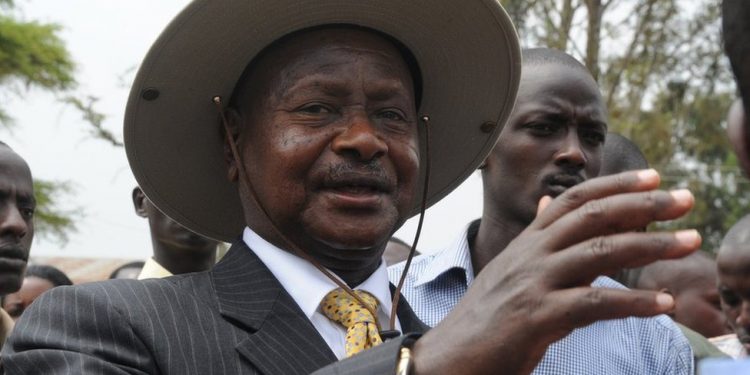- South Africa is not in a position to pronounce on whether the Ugandan elections were free and fair.
- The SA government and the African Union have not reacted to Museveni’s controversial victory.
- Museveni’s re-election to a sixth term came amid a clamp down on opposition campaigners and a shut down of the internet.
Almost six weeks after the Ugandan elections were announced, South Africa is not in a position to pronounce on whether it was free and fair.
This is according to International Relations and Cooperation Minister Naledi Pandor’s response to a parliamentary question from IFP MP Mkhuleko Hlengwa.
Last month, Ugandan President Yoweri Museveni was declared president for a sixth term.
The South African government – as well as the African Union (AU) – have not reacted to Museveni’s victory.
This came after a contentious election, during which there were deadly clampdowns on opposition campaigners.
Pandor said South Africa did not observe the elections.
“Based on the African Union principle of subsidiarity, which mandates regional organisations to take the lead in managing political and other issues occurring in their respective regions, South Africa defers its position to observations that were made by the East African Community (EAC) and Intergovernmental Authority on Development (IGAD) that had sent elections observer missions to Uganda. Unfortunately, the AU did not send an elections observer mission which could also have guided South Africa’s position. Both these regional authorities did not pronounce on whether the Ugandan elections were free and fair,” Pandor said.
The clamp down on opposition campaigners and a shut down of the internet was heavily criticised, by mostly western countries like the US.
The main opposition to Museveni’s presidency, Robert Kyagulanyi (popularly known as Bobi Wine), also launched a court bid against the election outcome, which he believes was rigged.
Despite the outrage over Museveni’s re-election, Pandor said the outcome of the elections was announced by a legitimate entity, the Election Commission in Uganda.
“However, it was reported on 21 January 2021 that one of the presidential contestants, Mr Robert Kyagulanyi Ssentamu has challenged the outcome of the elections. He lodged his complaints with in the Supreme Court of Uganda, which is the apex court in Uganda. He also has an option of referring the matter to the East Africa Court of Justice which also has jurisdiction following the exhaustion of local remedies. South Africa supports the resolution of political disputes through political and legal means, and will await the the outcome of the judicial process which is currently underway,” Pandor said.
Wine has meanwhile withdrawn his court bid challenging the election results claiming that the courts were not independent.
The AU did not send an observation team to the Ugandan elections because it had diverted the money meant for observers to the Africa Centres for Disease Control and Prevention, to help fight the Covid-19 pandemic.
Instead, it sent a smaller team of “experts” to Uganda for the elections, and they reported back to the AU Commission chairperson Moussa Faki Mahamat.
Leaders in the region, who have congratulated Museveni, include Kenya’s Uhuru Kenyatta, Tanzania’s John Pombe Magufuli, South Sudan’s Salva Kiir, Zambia’s Edgar Lungu, Burundi’s Evariste Ndayishimiye and Ethiopian Prime Minister Abiy Ahmed.
Russian President Vladimir Putin and the Chinese government have congratulated Museveni.






